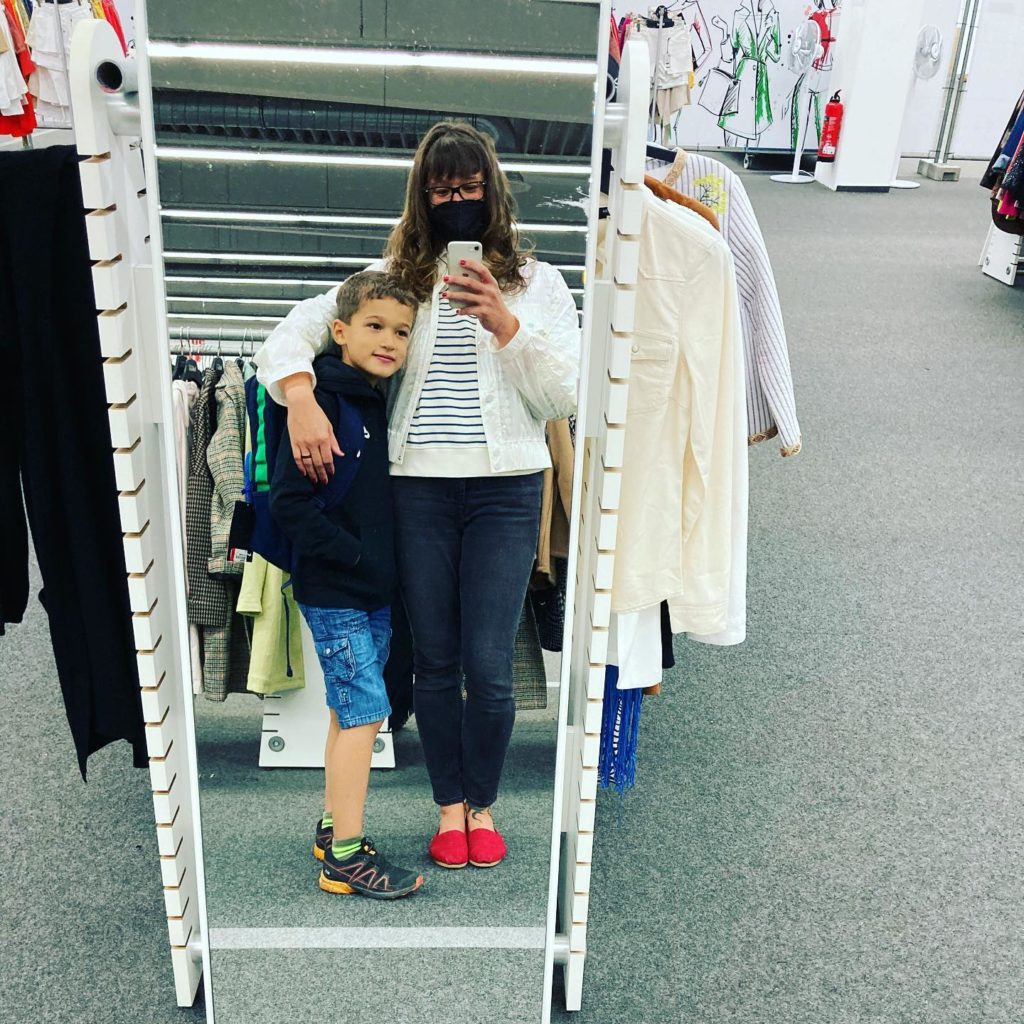
The other day, I was putting my almost eight-year-old son to bed, when he turned to me and asked…
“When I grow up, will I have a chin?!
At first, I didn’t know what he was talking about, but then I realized that he knows many men with beards, so he thought his chin would disappear. I explained that he could have a beard or no beard, and either way, he would still have a chin.
I thought my work there was done and was about to head to the living room to read, but his follow-up question was…
“How did I get in your belly?”
Big questions, little man!
Back when I was seven and heard on the school bus about the shocking mechanics of baby-making, I hurried home to ask my mom, and I remember sitting in our cozy kitchen as she told us matter-of-factly how it all worked. And gave us books about this topic to read.
So, I looked around for a few books for Joel, and here’s what I found…
The Baby Tree. This is a beautiful, charming book about a little boy, whose parents reveal over breakfast that they’re expecting another baby. The boy wonders where the baby will come from, and proceeds to ask his babysitter, teacher, mail carrier, and grandpa. They all give him different answers, and when he finally asks his parents, they tell him directly and truthfully (and somewhat abstractly:). It’s really sweet, and I love that the final page of the book addresses more in-depth questions — about adoption, same-sex parents, etc.
Ages 4-8: It’s Not the Stork!
Ages 8-10: It’s So Amazing!
Ages 10 and up: It’s Perfectly Normal
These three books by Robie H. Harris and Michael Emberley are WONDERFUL. They talk about bodies, sex, birth, adoption, different types of families — and for teenagers, puberty, contraception, homosexuality, masturbation, you name it. The books are very open and accepting of kids’ questions and feelings while writing with a warm, direct tone.
Pamela Druckerman wrote a New York Times essay about the inspiring Dutch approach to teaching kids about sex:
Apparently, the Dutch are at the forefront of sex education, and they have little trouble broaching the topic. Parents in the Netherlands have lots of casual age-appropriate talks about sex with their kids, over many years, beginning when children are small.
“If we start with sexuality education when children are teenagers, or even just before they start with any interest in sexuality, I think you are too late,” says Sanderijn van der Doef, a psychologist…“As soon as children have questions, they have the interest, and then they have the right to get a correct answer.”
Dr. Van der Doef says parents should give simple, clear responses. If the child has more questions, he’ll ask. Once he’s 3 or 4, “You can start to explain, in a very simple way, that Mommy has a little egg in her belly, Daddy has very small sperms in his body, and when the sperms meet the egg, a baby grows in the belly of the mother.” Three-year-olds rarely ask how the sperm and egg meet. If they do, “then you have a very smart child at that age, and that means that child needs to have an answer,” she adds.
What about you? Have your little dudes asked about where babies come from? What did you tell them? How did your parents tell you? I’d love to hear… and no, I am not pregnant.